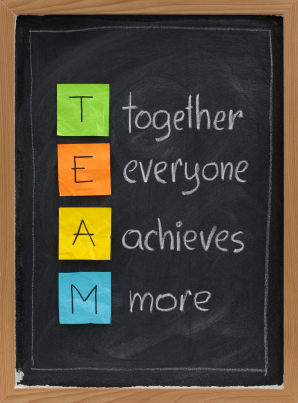Team building activities are essential in creating a productive team, since they serve to increase communication among team members in a positive working environment. Actually staff are most productive when they are happy within they role, and feel that they are making a valued contribution to the team’s goals.
Team building does not have to be painful, annoying or even embarrassing. There are many valuable team building exercises that can be effective in uniting groups, developing individual skills and collective strengths.
There are four main types of team building activities, which includes:
1. communication activities and icebreakers;
2. problem solving and/or decision making activities;
3. adaptability and/or planning activities;
4. building trust.
If you want to learn more on team building activities, read here: http://www.huddle.com/blog/team-building-activities/

Image source: http://bit.ly/1uEy4E9






![solution[1]](http://diplolearn.files.wordpress.com/2012/11/solution1.jpg?resize=347%2C346)